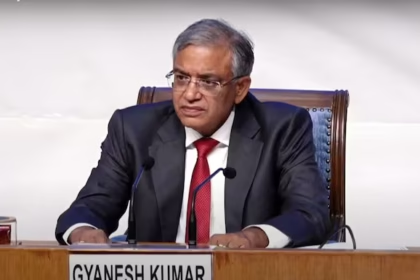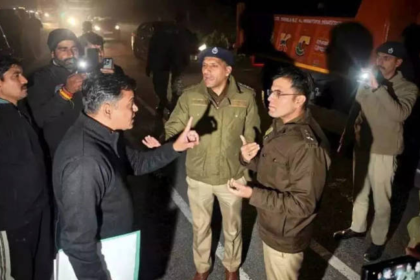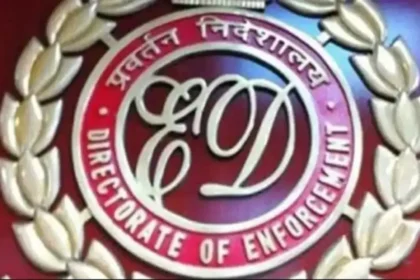Court Slams Kamal Haasan: “Don’t Misuse Free Speech to Hurt Religious Sentiments,” Warns Judge in 2025 Case
Karnataka High Court Slams Kamal Haasan Over ‘Kannada Born Out of Tamil’ Remark, Urges Apology Amid Film Ban Row
In a fresh episode that underscores the deep sensitivities surrounding language, identity, and political influence in India, Tamil actor-politician Kamal Haasan has come under fire over his recent remark that Kannada, the official language of Karnataka, was “born out of Tamil”. The statement, made during a promotional event for his upcoming film ‘Thug Life’ in Chennai, sparked widespread criticism and legal backlash, culminating in a strong rebuke from the Karnataka High Court.
At the center of the controversy lies Haasan’s comment delivered earlier this week during a press meet in Chennai. Referring to the linguistic and cultural connection between Tamil and Kannada, he stated, “Your language (Kannada) was born out of Tamil, so you too are included.” Intended, perhaps, to convey linguistic unity and shared heritage, the remark instead triggered significant outrage in Karnataka, where linguistic pride remains a politically sensitive and emotionally charged subject.
Court Intervenes Amid Public Outcry
Responding to a petition seeking a stay on the release of Kamal Haasan’s film in Karnataka, the Karnataka High Court on Tuesday issued a stern advisory to the 70-year-old actor. The court reminded Haasan of his influence and responsibilities as a public figure, particularly given his dual role as a film icon and politician.
“You are not an ordinary man,” the court noted during proceedings. “You have the right to free speech… but not to hurt sentiments. The fundamental right of speech and expression cannot extend to the point of harming the sentiments of the public.”
Delivering a sharp rebuke with a culinary metaphor, the court said, “You can’t unscramble scrambled eggs,” alluding to the irreversible damage such statements could inflict once released into the public domain. The judges urged Haasan to apologise and withdraw the contentious statement voluntarily, cautioning that public sentiment and inter-state harmony must not be undermined for promotional or political gains.
Legal Proceedings and Petition
The High Court was hearing a petition filed by a civic activist in Bengaluru, who urged the judiciary to prevent the release of ‘Thug Life’ in Karnataka unless Kamal Haasan apologised for his remarks. The petitioner argued that the actor’s statement insulted the Kannada language and hurt the sentiments of the Kannada-speaking population.
The plea also cited concerns about law and order, arguing that releasing the film amid prevailing tensions could lead to unrest and public demonstrations. The Karnataka Film Chamber of Commerce (KFCC), meanwhile, had already preemptively announced a ban on the film’s premiere in the state, further escalating the row.
The Film Chamber’s Stance
On Monday, the KFCC’s President, MM Narasimhulu, reiterated the industry body’s position: “Kamal Haasan is insisting, ‘I have not done anything wrong, so I will not apologise.’ But if he does not apologise, there is no question of allowing the film’s release.”
This declaration drew criticism and support in equal measure. While some argued that artistic expression and political speech must be protected, others insisted that Haasan must take accountability, especially when addressing culturally sensitive topics in multilingual India.
Kamal Haasan’s Defense and Political Implications
Speaking to the media on Friday, Haasan stood by his statement, saying he did not believe it was incorrect or offensive. “This is a democracy and I believe in law and justice,” he asserted, adding that he would have apologised had he felt his words were wrong or misrepresented.
Haasan, a prominent voice in Tamil Nadu’s political landscape and the founder of the Makkal Needhi Maiam (MNM), is widely expected to take a seat in the Rajya Sabha soon, backed by the ruling Dravida Munnetra Kazhagam (DMK). His statements—often seen as pro-Tamil or critical of dominant narratives—have occasionally drawn national scrutiny, particularly when they intersect with topics of regional pride or identity.

The Lingual Sensitivities in South India
The reaction to Haasan’s comment cannot be fully understood without recognizing the complex linguistic identities in South India. Tamil and Kannada, while both Dravidian languages, have distinct literary traditions and historical roots. Kannada boasts a classical language status, like Tamil, and has evolved independently for over a millennium. While historical interactions and linguistic overlaps exist, suggesting that one language is “born out of” another can be seen as dismissive or reductive of cultural pride—especially in states where language is a key element of regional identity.
Such remarks are often perceived not just as academic opinions but as political statements, with potential ramifications in elections, film distribution, and public sentiment.
Political Reactions and Fallout
The Bharatiya Janata Party (BJP), which leads the opposition in Karnataka and is allied with the AIADMK in Tamil Nadu, seized upon the controversy to criticize Kamal Haasan and the DMK. Karnataka BJP chief B.S. Yediyurappa stated that the actor had “insulted Kannada and Kannadigas,” demanding that he issue an unconditional apology.
“The statement is not only factually incorrect but highly disrespectful to the Kannada language and its heritage,” he added. The BJP’s state unit has urged its supporters to boycott ‘Thug Life’ unless Haasan retracts his remarks.
Free Speech vs. Public Sentiment: A Legal and Ethical Dilemma
The controversy brings into sharp focus the perennial debate in India around the limits of free speech. While Article 19(1)(a) of the Constitution guarantees freedom of expression, this right is subject to “reasonable restrictions” in the interest of public order, decency, and morality under Article 19(2).
Legal experts note that while Kamal Haasan’s statement may not constitute hate speech or incitement to violence, it has the potential to disrupt public order if left unaddressed. “Public figures carry additional responsibility. Their words travel faster and resonate deeper. Courts can and should advise caution, especially when sentiments across state borders are involved,” says constitutional law expert Dr. Veena Raghunathan.
Yet others argue that artistic expression and linguistic debate must be protected in a pluralistic democracy. “India’s linguistic map is complex, and public discourse should allow for diversity of views—even if they’re controversial. Silencing or censoring public figures through judicial pressure can set a dangerous precedent,” says advocate Rohan Joshi, a free speech activist based in Bengaluru.
Damage Control or Defiance?
At the time of publication, Kamal Haasan had not issued a formal apology. His production team has made no public statements on whether ‘Thug Life’ will be delayed or reedited for Karnataka audiences. The trailer launch, however, continues to be promoted on social media channels across Tamil Nadu.
Industry analysts say the film’s earnings could be significantly affected if the Karnataka ban continues. “Karnataka is an important market for Tamil films, especially those featuring stars like Kamal Haasan,” said Suresh Babu, a distributor in Bengaluru. “A boycott here can dent the opening weekend’s numbers and damage cross-border promotion.”
A Pattern of Controversy?
This is not the first time Kamal Haasan has courted controversy. The actor has previously made headlines for remarks on Hindu extremism, caste politics, and Tamil nationalism. In 2017, he described Hindu terror as a reality, leading to threats and multiple FIRs.
More recently, Haasan has positioned himself as a progressive voice on issues like secularism, linguistic rights, and federalism. However, critics say his public pronouncements often blur the line between intellectual discourse and political provocation.
The Broader Takeaway
As India approaches key national and state elections in the coming year, identity politics—be it linguistic, regional, or cultural—is expected to play a pivotal role. The Haasan episode serves as a reminder of the fragile equilibrium that holds India’s diverse states together, where speech and sentiment must be weighed with care.
While the court’s comments were advisory and not part of a final judgment, their impact on public perception is significant. Whether Kamal Haasan chooses the path of reconciliation or continues to defend his position could shape not just the immediate fate of ‘Thug Life’ but also his political trajectory.
For now, the ball lies in Kamal Haasan’s court: an apology could end the row, but refusal could escalate tensions—both cultural and legal—further.
Also Read : India’s Bold Climate Call: Urges 190+ Nations to Boost Green Contributions Ahead of Crucial COP Meeting








